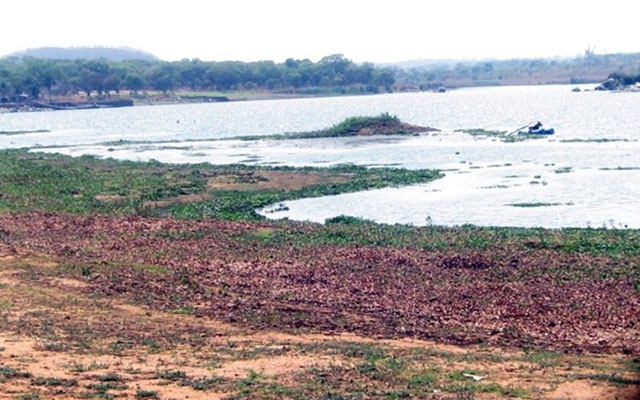Jeffrey Gogo Climate Story
ON May 9 the Forestry Commission of Zimbabwe (FCZ) seized two T35 trucks and a minibus transporting a cargo of illegally logged firewood from Lake Chivero Recreational Park, on the outskirts of Harare.
The fuel-wood is sold to the poor in the surrounding townships such as Dzivarasekwa for $1 for a bundle of five sticks, according to a survey by The Herald Business.
It’s big business. But as illegal loggers step up their activity to feed the need for household energy, the devastation of the nation’s forests has become almost unstoppable. At the 6 100-hectare Chivero park, home to a range of native tree species, the damage illegal loggers have done is evident.
Countless stumps now stand where trees once stood for decades. “…visually, it is clear that firewood poaching is on the increase as compared to last year because forest cover has decreased,” said Violet Makoto, the FCZ’s spokeswoman, by email.
Makoto failed to provide data on the extent of damage at Chivero.
She said: “We would require an inventory to be done to determine the specific statistics of the quantity of trees or the area of forests that have been lost.”
The Forestry Commission said in a statement early in May that the poaching of firewood was widespread also on “state-land forests” outside the recreational park, with unlicensed loggers mainly from Dzivarasekwa and Budiriro driving trade.
Chainsaws, axes
According to the U.N.’s Food and Agriculture Organisation (FAO), Zimbabwe lost 327 000 hectares of plantation forests and natural woodland on average each year between 1990 and 2010.
That’s the equivalent of between 50 and 60 million trees annually.
By comparison, public sector afforestation programmes put at least 10 million trees into the ground per year, on the average.
Now there are only 15,6 million hectares of forests remaining, FAO says.
The imbalance is astounding.
At this rate of deforestation, there might be very little of forests to speak of in 50 years time.
And with fuel-wood’s share in the national energy mix at around 61 percent, according to data from the Energy Ministry, Zimbabwe’s forests have already been dwindling rapidly.
Studies by the University of Zimbabwe show that in a country where 60 percent of citizens are not connected to the electricity grid, urban households already consume one to 3 tonnes of fuel-wood per year, and rural families more than double that.
Quoting a study done 25 years ago, Forestry Commission operations manager Stephen Zingwena told The Herald Business that Zimbabwe needed between 9 and 11 million tonnes of firewood annually for domestic cooking and heating, and 1,4 million tonnes for tobacco curing.
With intermittent power supplies, and low incomes in an era of prepaid electricity, those numbers have already surged and are likely to continue doing so.
The Energy Ministry says the country is not expected to produce enough non-wood power and become fully energy secure until about 2020, when a number of planned power projects are due to go online.
At Chivero, witnesses report seeing loggers mowing down the forest using chainsaws and hand axes, under cover of darkness, this writer has established in previous interviews.
The Forestry Commission spokeswoman Makoto said the trucks impounded last month were only a few of the many used by loggers to “collect and transport firewood to residential areas in Harare where they have a ready market.”
Catch 22, weak laws
In 2012 the Government passed a law restricting the use, trade and movement of firewood, but with fines as low $20 – a pittance for the established firewood dealer – the legislation is proving a poor deterrent.
Makoto conceded in a 2015 interview, at the peak of Zimbabwe’s energy crisis when households spent up to 18 hours a day without power, that electricity shortages were making it difficult to keep deforestation under control.
“It has become more and more difficult to enforce legislation as the situation becomes more about livelihoods,” she said then.
Now, the Forestry Commission has resorted to persuasion to help save forests.
“Monitoring of firewood poaching needs a multi-stakeholder approach, where we have people involved at all levels of society who are concerned about the exploitation of their resource,” Makoto appealed.
She continued: “We particularly depend on local community leaders under whose jurisdiction the forests fall. As is the case with Chivero, we have been getting alerts and reports from local patrol teams who monitor activities in their areas.
“This makes it easy for us to respond timeously and be able to apprehend perpetrators. We also encourage the Municipal police to assist in arresting illegal firewood vendors in their respective areas of jurisdiction; those that are trading firewood at undesignated selling points – just as they control trading of vegetables and other wares on undesignated points.”
That’s not all. The FCZ have moved to amend the Forest Act, hoping “to impose mandatory custodial sentences that will deter would-be offenders.”
But until then, Zimbabwe’s shrinking forests are expected to exacerbate the water shortages (which led to interruptions at Kariba hydro in 2015) that are fuelling the illegal logging trade, in a vicious ecological cycle.
Models show deforestation could result in a substantial decline in precipitation across Zimbabwe within a few decades, scientists say.
God is faithful.

